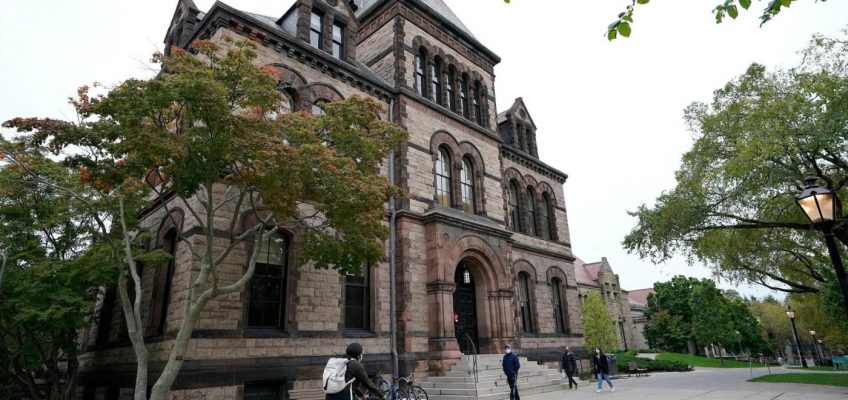By COLLIN BINKLEY, Associated Press
WASHINGTON (AP) — Brown University is rejecting a Trump administration proposal that would provide favorable access to funding in exchange for a wide range of commitments, saying the deal would curtail academic freedom and undermine the university’s independence.
Brown is the latest university to turn down the proposal, which White House officials said would bring “multiple positive benefits” including “substantial and meaningful federal grants.” The Massachusetts Institute of Technology backed away from the proposal last week after its president said it would restrict free speech and campus autonomy.
Brown President Christina Paxson turned down the proposal on Wednesday in a letter to Education Secretary Linda McMahon and White House officials. The Ivy League university in Providence, Rhode Island is aligned with some of the provisions in the offer, she said — including commitments to affordability and equal opportunity in admissions — but can’t agree to others.
“I am concerned that the Compact by its nature and by various provisions would restrict academic freedom and undermine the autonomy of Brown’s governance, critically compromising our ability to fulfill our mission,” Paxson wrote.
Related Articles
Journalists turn in access badges, exit Pentagon rather than agree to new reporting rules
Judge dismisses young climate activists’ lawsuit challenging Trump on fossil fuels
Judge temporarily blocks the Trump administration from firing workers during the government shutdown
Trump officials back firm in fight over California offshore oil drilling after huge spill
DOJ seeks pause on Florida immigration detention center lawsuit, cites government shutdown
Brown and MIT were among nine universities invited this month to become “initial signatories” to the proposal. Officials at the University of Texas system said they were honored to be invited, while most others have remained quiet. The Trump administration invited feedback from universities by Oct. 20 and requested decisions no later than Nov. 21.
Brown previously struck a deal with the Trump administration to restore lost research funding and end federal investigations into discrimination.
In that agreement, finalized in July, Brown agreed to a $50 million payout to workforce organizations in Rhode Island. It also agreed to adopt the federal government’s definition of “male” and “female,” to eliminate diversity targets in admissions and to renew partnerships with Israeli academics, among other terms.
Unlike that deal — which includes a clause affirming Brown’s academic freedom — Paxson said the new proposal lacks any guarantee that the university would retain control over its curriculum or academic speech. Her rejection is in line with the views of the “vast majority of Brown stakeholders,” Paxson wrote.
In a post on his Truth Social platform on Sunday, President Donald Trump suggested other campuses can step forward to participate in the compact. Those that want to return to “the pursuit of Truth and Achievement,” he said, “are invited to enter into a forward looking Agreement with the Federal Government to help bring about the Golden Age of Academic Excellence in Higher Education.”
In its letter to universities, the administration said the compact would strengthen and renew the “mutually beneficial relationship” between universities and the government. The compact is a proactive attempt at reform even as the government continues enforcement through other means, the letter said.
The proposal includes several commitments around admissions, women’s sports and free speech. Much of it centers on promoting conservative viewpoints, including by abolishing “institutional units that purposefully punish, belittle, and even spark violence against conservative ideas.”
The Associated Press’ education coverage receives financial support from multiple private foundations. AP is solely responsible for all content. Find AP’s standards for working with philanthropies, a list of supporters and funded coverage areas at AP.org.


Leave a Reply